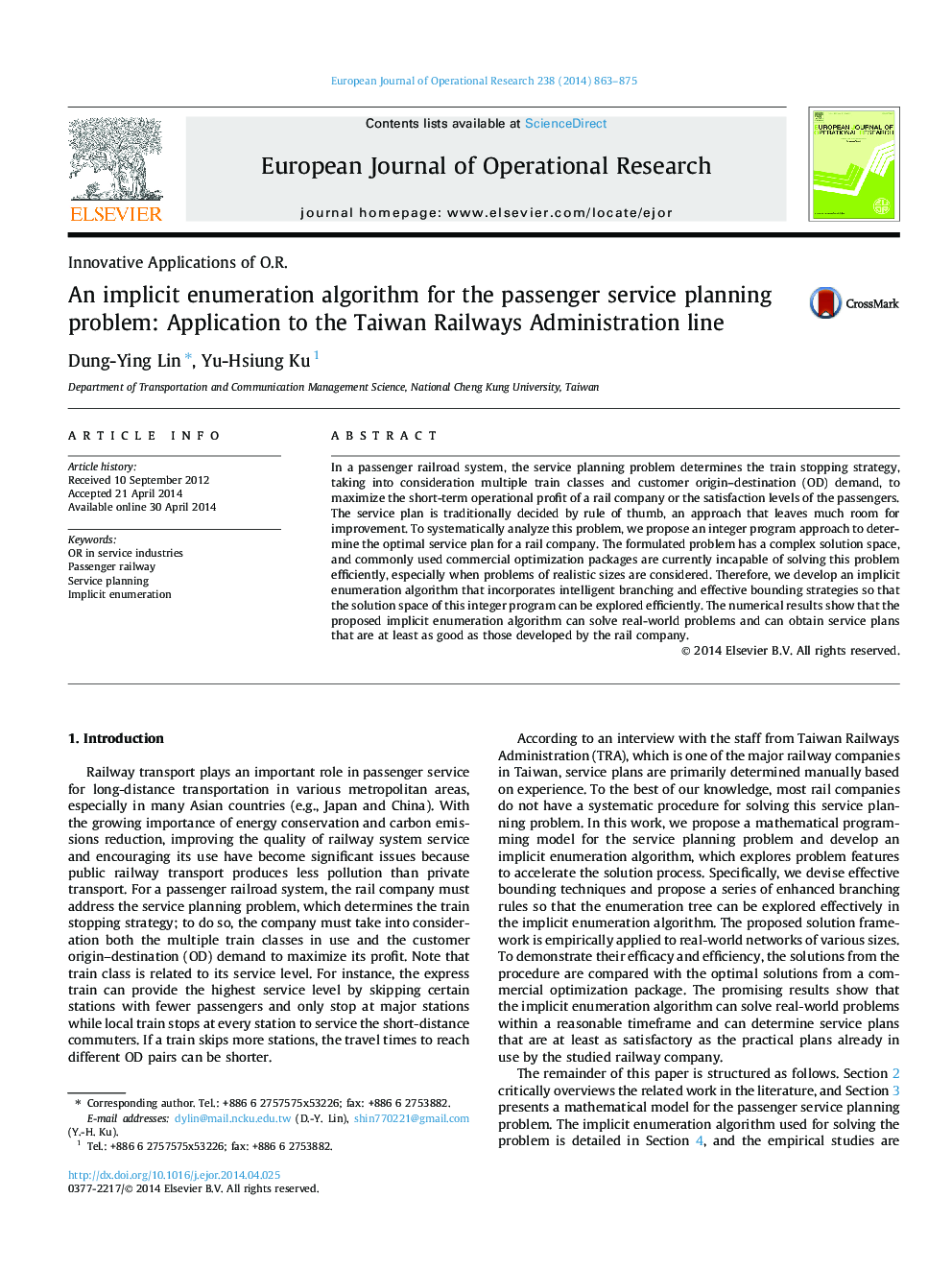| Article ID | Journal | Published Year | Pages | File Type |
|---|---|---|---|---|
| 479671 | European Journal of Operational Research | 2014 | 13 Pages |
•We investigated the passenger service planning problem of a railway company.•An implicit enumeration algorithm was developed to solve this problem.•Intelligent branching and effective bounding strategies were explored and incorporated.•Results show that we can obtain service plans that are at least as good as real-world plans.
In a passenger railroad system, the service planning problem determines the train stopping strategy, taking into consideration multiple train classes and customer origin–destination (OD) demand, to maximize the short-term operational profit of a rail company or the satisfaction levels of the passengers. The service plan is traditionally decided by rule of thumb, an approach that leaves much room for improvement. To systematically analyze this problem, we propose an integer program approach to determine the optimal service plan for a rail company. The formulated problem has a complex solution space, and commonly used commercial optimization packages are currently incapable of solving this problem efficiently, especially when problems of realistic sizes are considered. Therefore, we develop an implicit enumeration algorithm that incorporates intelligent branching and effective bounding strategies so that the solution space of this integer program can be explored efficiently. The numerical results show that the proposed implicit enumeration algorithm can solve real-world problems and can obtain service plans that are at least as good as those developed by the rail company.
